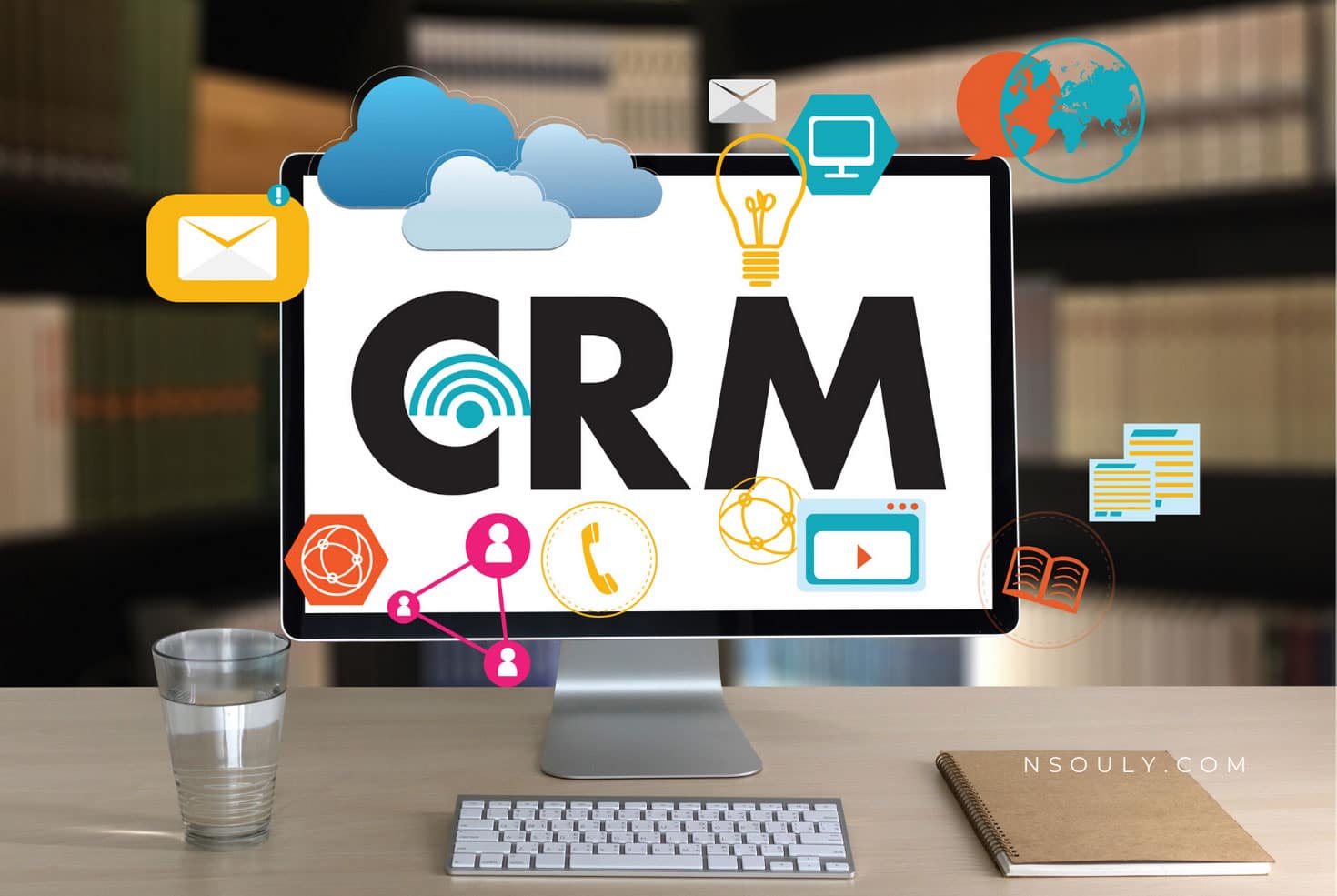Best CRMs With QuickBooks Integration
One of the main benefits of CRM software is the ability to get every aspect of your business working in sync. By uniting your communication and marketing tools with your sales platform, your team can conduct and track all their sales conversations from a single tool. But if you also rely on accounting software to manage incoming and outgoing payments, there are a lot of hidden benefits to integrating it with your CRM as well. QuickBooks is an accounting software platform geared towards small and medium-sized businesses, offering millions of businesses a simple way to manage their daily sales and expenses, invoice their customers, accept payments, pay their bills, and generate reports for planning and tax filing.
Most major CRM softwares on the market offer a QuickBooks integration. However, all of those integrations don’t work in exactly the same way. Some CRMs come with the option of single-click setup while some of the others have a longer, more complicated installation process. Since the biggest challenge faced by most CRM users is finding a platform that can easily be integrated with QuickBooks, choosing the right option is very important.
Let’s take a look at why you need to get your CRM talking to your accounting software, and some of the best CRMs that integrate with QuickBooks and QuickBooks Online.
Table of Contents
Best CRMs that offer integration with QuickBooks
Why QuickBooks Is Always Your First CRM
Since QuickBooks is great at storing contacts and buying histories, most small businesses often use it as their first CRM.
When your business is just getting started, being able to access customer contact information from your accounting software might be enough. But just like spreadsheets, QuickBooks doesn’t actually do anything to help you make sales—it only helps you manage billing and accounting after the fact—so it’s important to connect your QuickBooks account with software that helps you manage your pipeline.
Think of integrating QuickBooks with your CRM as a way for every member of your team to have a birds-eye view of every client. What is their buying process’ stage?Do they need more nurturing? How was their buying behaviour in the past? What was the subject of your last conversation with them.
Sure, automating your invoicing, billing, and follow-up on unpaid invoices saves you valuable time, but the real magic of uniting your QuickBooks account and CRM platform is that it provides transparency to your entire sales funnel, which boosts your chances of closing more leads and growing your business.
And since your accounting software needs to be a reliable source of truth for billing and payment information, keeping your CRM and accounting software synced will keep your customer data clean and organized for the whole team.
How a CRM Integration Can Help You Find Buried Treasure
The realization of how many leads you have sitting in your pipeline probably won’t hit you until you import all your data from QuickBooks.
What does your QuickBooks customer list look like right now? Is it jam-packed with customers who you’ve spent time and effort crafting proposals or estimates for…and never heard back from? If so, ask yourself: How many of those leads has your team followed up with, to the best of their ability?
Those cold leads don’t belong in QuickBooks. They belong in the hands of your sales team.
All of a sudden, that boring accounting data is a lot more interesting.
CRMs That Integrate with QuickBooks:
Insightly

Kicking off the list of CRMs that integrate with QuickBooks, is Insightly. It prides itself on its QuickBooks integration.
Similar to Nutshell, Insightly is mainly focused around its QuickBooks Online integration. Insightly’s integration is simple to use, easy to install, and offers you a lot right out of the box.
You can view the payment history and status on any of your customers in a customized “QuickBooks Online” tab.
Like other CRMs, Insightly will give you a complete history of any customer you have on your books, allowing your sales team to have a better understanding of the customer they’re dealing with.
Because it plays so nicely with QuickBooks, you might find it surprising that you can’t create invoices or estimates directly from Insightly. Despite all the bells and whistles, you have to leave your CRM to bill a customer. You also can’t accept direct payments through the CRM either, so if these features are deal-breakers for you, you might have to look for another CRM.
Best for: Businesses that are looking to equip their CRM platforms with advanced project management features.
Method
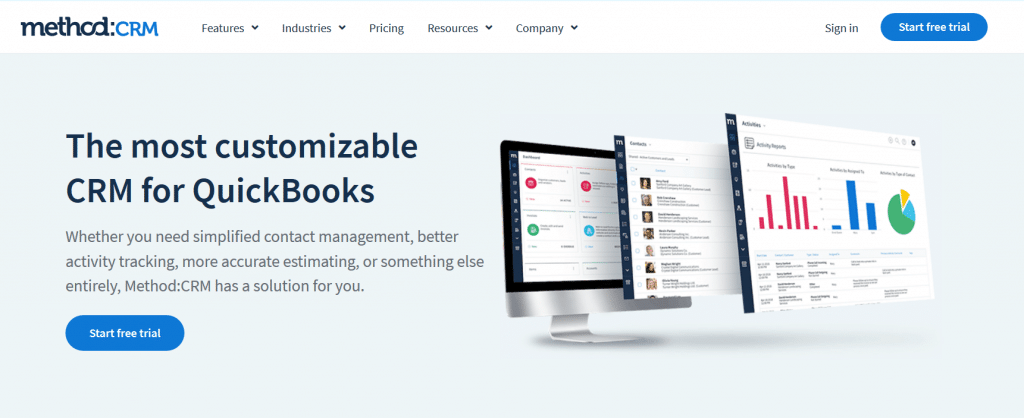
Next on the list of CRMs that integrate with QuickBooks, is Method. It is one of the CRMs on our list that plays well with every QuickBooks product.
Regardless of what kind of QuickBooks you use, Pro, Premier, Online or Enterprise, Method will seamlessly integrate your data. It has very broad integration capabilities. As a result of all that, it’s a wonderful choice if you are looking for a CRM where QuickBooks forms an integral part of your sales process.
From creating estimates to invoicing, Method makes it simple to perform common QuickBooks tasks from within their system. Method also syncs contacts across both platforms to save you loads of time on data entry.
Though Method offers a wide range of QuickBooks features, it lacks in several key aspects of a sturdy CRM. Things like pipeline automation, built in phone capabilities and customizable reporting.
Best for: Companies whose #1 priority in a CRM is how well it plays with QuickBooks.
Nutshell
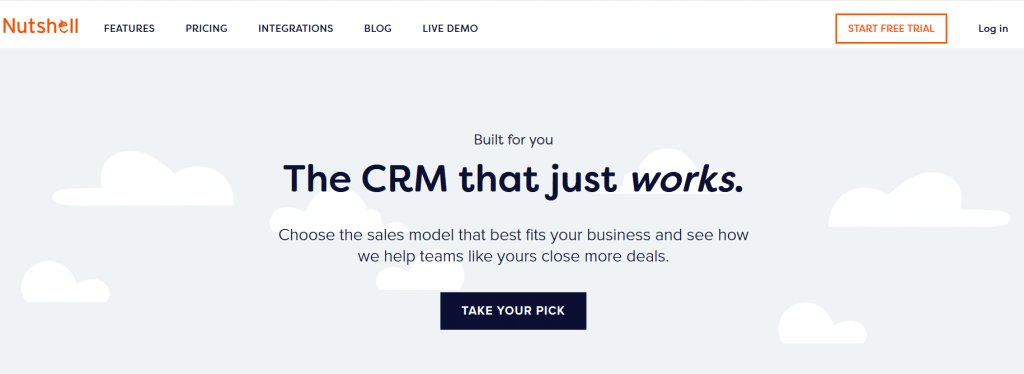
Next on the list of CRMs that integrate with QuickBooks, is Nutshell. It is a sales automation and powerful CRM platform that has been designed to help sales teams speed up their work. Nutshell’s QuickBooks online integration strikes the right balance of simple and sophisticated.
If you have a customer list stored in QuickBooks Online, you can import it into Nutshell in just a few clicks with Nutshell’s direct importer.
All of your QuickBooks Online customers will be rolled over into your CRM in seconds, so you can start tracking communication histories, nurturing clients towards repeat business, and incorporating your QuickBooks contacts and data into your sales and revenue reporting.
In March 2020, Nutshell released a native QuickBooks Online integration, which allows customers to send people, companies, and leads to QuickBooks from their respective pages, as well as create invoices in QuickBooks directly from the lead page.
Nutshell also offers a Zapier integration, which allows you to trigger invoices, bills, or new records through QuickBooks Online once you’ve enabled the connection through Nutshell, and keeps customer records synced in both places.
Best for: Sales teams that are searching for a CRM that is packed with features, while being extremely user friendly and customizable. It also integrates easily with QuickBooks online.
Salesforce

Next on the list of CRMs that integrate with QuickBooks, is Salesforce. It used to feature a special integration with QuickBooks called Salesforce for QuickBooks.
With this program, sales CRM could plug straight into QuickBooks. But there were problems, and the software was scrapped after three years. The integration was really only set up for businesses at the lower level of Salesforce, and it turns out the program wasn’t compatible with a lot of Salesforce’s own extensions.
Thankfully, Salesforce also plays nice with Zapier. So if you’re looking for a QuickBooks integration through Salesforce, you can still have it.
Upon connection, you will have the option to sync your QuickBooks customers to Salesforce accounts. You can then see all of their details from the CRM interface.
You can also do loads of other stuff with the integration, like create transactions, invoices, and manage accounts.
A complete sales history will also be available to your team right from Salesforce, along with an automatic data sync between both platforms.
Best for: Large companies who are looking to work from the Salesforce Sales Cloud.
Zoho
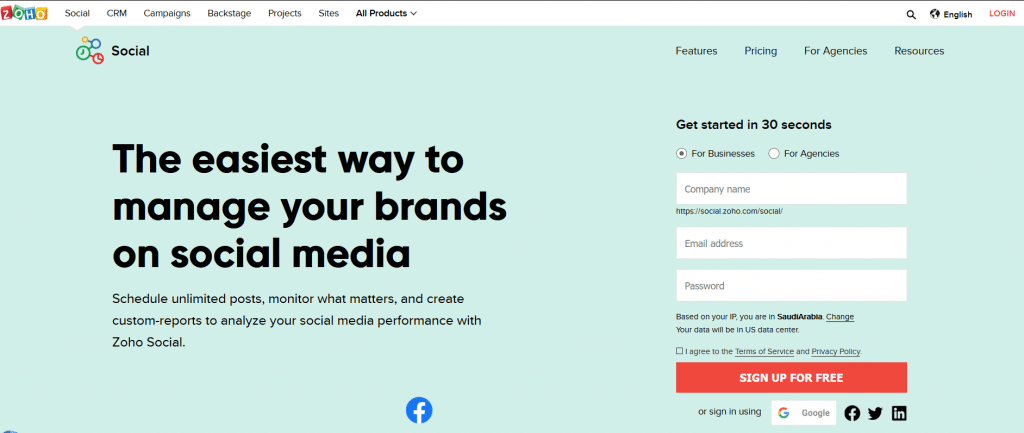
Next on the list of CRMs that integrate with QuickBooks, is Zoho. Its integration with QuickBooks leans heavily on customization. It’ll take you a while to set it up, though.
Although Zoho allows you to add QuickBooks easily enough from the integration dashboard, that’s about as simple as it gets. Zoho works great as a Smartsheet alternative as well.
After the initial manual setup, you’ll then have the option to create timesheets, integration reports, and bills with just a few clicks and push them straight to QuickBooks. You also have the option to automatically sync your expenses and invoices back to QuickBooks.
Best for: Companies that are looking for an advanced and customized QuickBooks/CRM relationship.
Copper
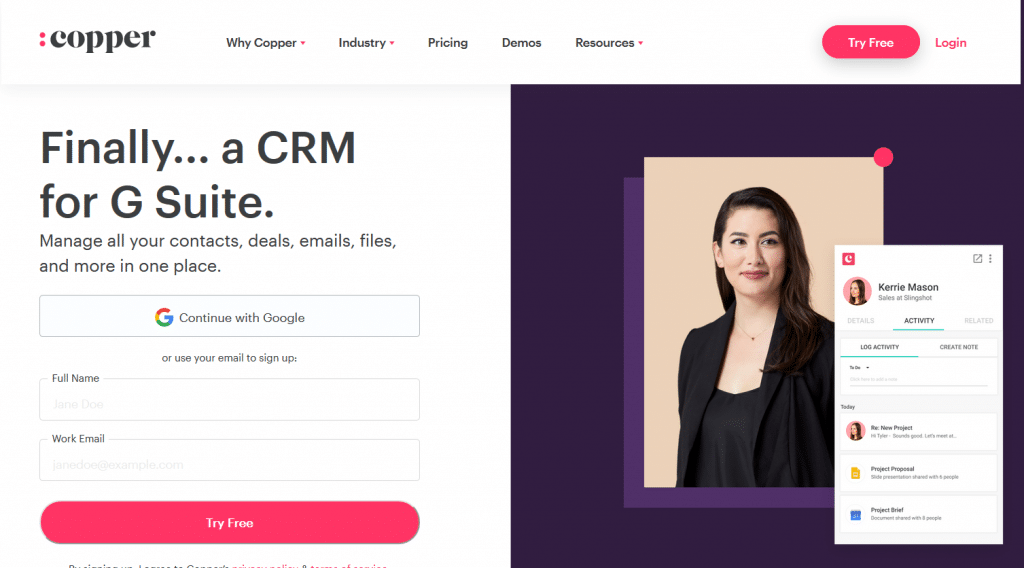
Next on the list of CRMs that integrate with QuickBooks, is Copper. At the moment, the only way to connect QuickBooks to Copper is through Zapier. You’ll need premium QuickBooks and Zapier accounts to connect the two.
Once you connect through Zapier, you’ll be able to log payments as activities. You’ll also be able to view past invoices and payment amounts on your records, straight from the Copper dashboard.
Copper’s integration with QuickBooks is fairly limited. There are only a couple of functions available through Zapier to make Copper and QuickBooks talk.
Best for: Companies who have sales teams that work primarily out of G Suite.
Freshsales
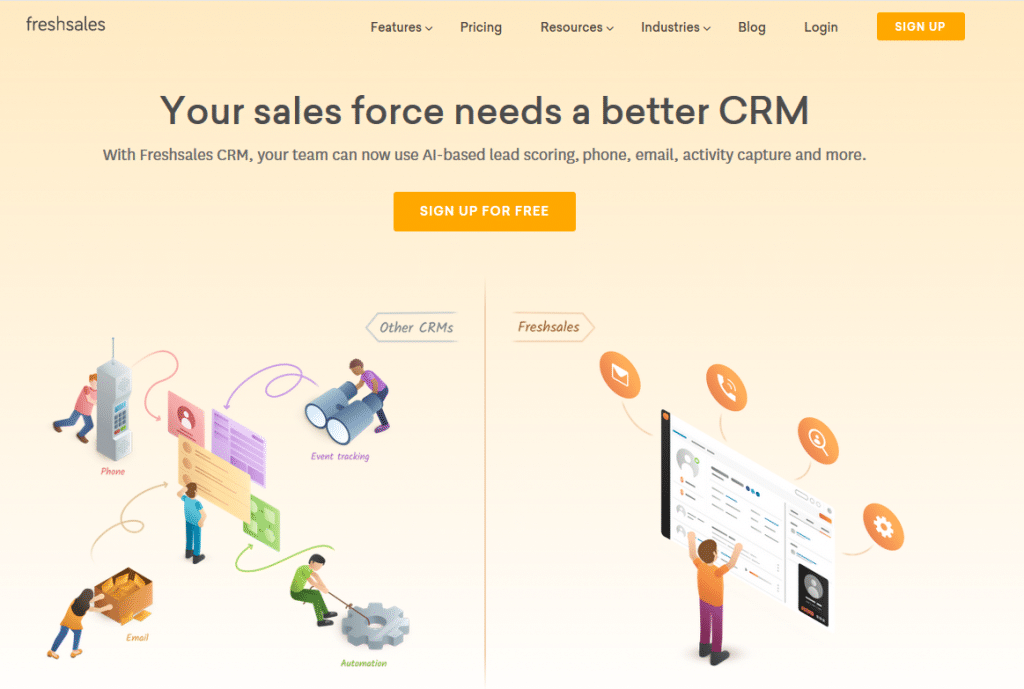
Next on the list of CRMs that integrate with QuickBooks, is Freshsales. It lets you pin or connect invoices to contacts from the CRM, which can come in very handy if you are having trouble chasing payments. You shouldn’t confuse this with the famous business management software Freshbooks.
The integration lets invoices and history of customers to be kept for each customer on the Freshsales interface.
However, the integration is truly made unique by the built in phone feature. In case you face problems with invoices or payments, your finance team can easily follow up with them from Freshsales.
The feature will also be a massive bonus if your sales team closes more deals over the phone. Because of its functionality, Freshsales gives your sales reps the tools to control the entire deal, from prospecting to the final invoice.
But, there is some bad news.
Freshsales does offer a lot, but you won’t be able to directly invoice a customer from Freshsales, nor can you make payments.
Best for: Sales teams who close a lot of deals over the phone.
GreenRope
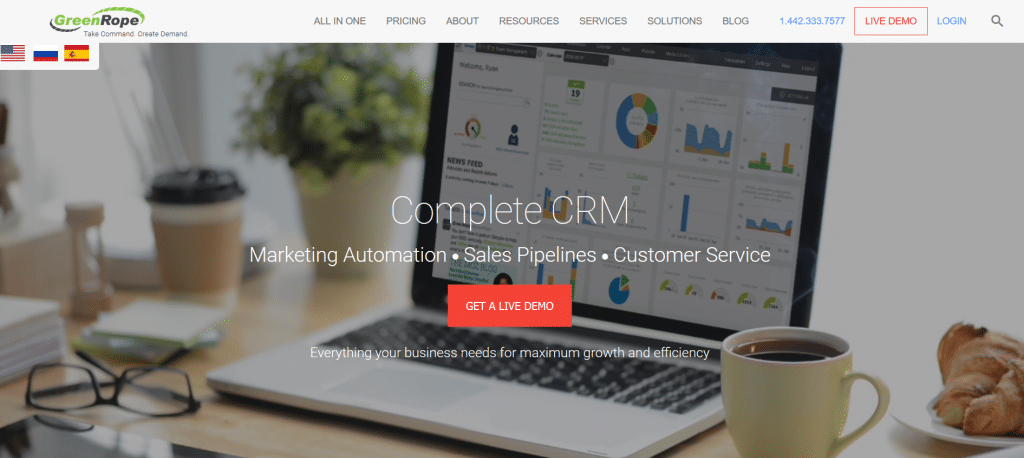
Next on the list of CRMs that integrate with QuickBooks, is GreenRope. Even the smaller CRMs on our list are getting in the QuickBooks action.
While GreenRope only has around 3,000 customers worldwide, it does offer direct QuickBooks integration from its software.
Some of the features you’ll get from the integration include importing customers as new contacts and transferring your invoices across platforms.
You can also sync your customer data over from QuickBooks and then set the system to update any data from that point, automatically.
GreenRope utilizes QuickBooks’ very own Web Connector , which is easy to install on your desktop.You need this to be running for the syncing of invoices and contacts within the CRM, though.
Final Thoughts
While a good QuickBooks integration in your CRM is extremely important, you should try to look for the best CRM and not just the best integration.
That’s why most CRMs on the market have stepped up to the plate and offered some way to integrate QuickBooks into their system.
But while it’s important to integrate QuickBooks with your CRM, it doesn’t have to be your main priority when choosing a CRM.
Remember: Choosing the right CRM for your business can make a massive difference to the performance of your sales team—not to mention your customer service team, your marketing team, and how all these teams work together. So you must ask yourself, do you want a CRM that fits best with QuickBooks or a CRM that fits best with your business. Try to see the bigger picture and choose a CRM that positively impacts the entire business, and not just a small section.

